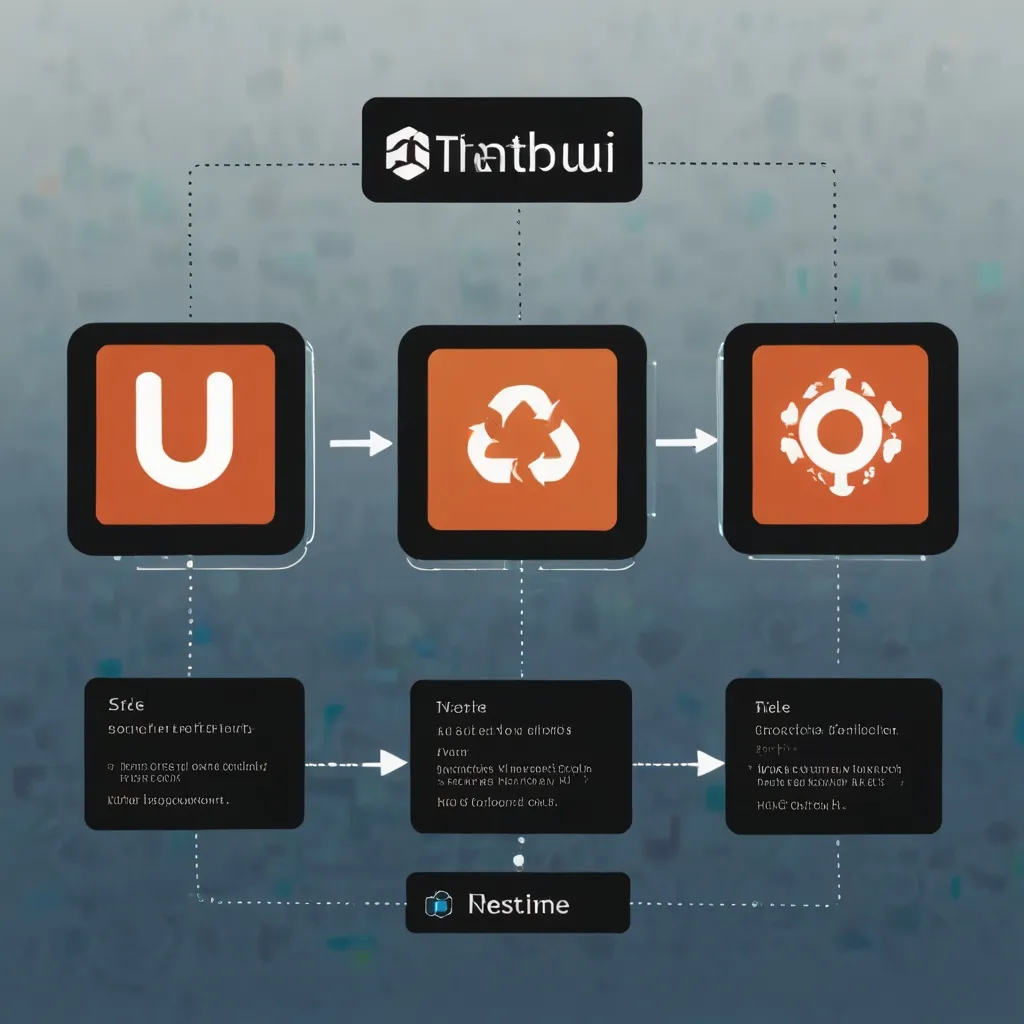WebAssembly’s extended constant expressions are about to shake things up in the world of web development. They’re giving us new ways to set up data in Wasm modules, and it’s pretty exciting stuff.
Right now, constant expressions in WebAssembly are pretty basic. But with this new proposal, we’re getting a whole lot more options. We’ll be able to do things like arithmetic, bitwise operations, and even some control flow right at compile-time. This means we can create more complex initial values for globals, element segments, and data segments without slowing things down at runtime.
Let’s dive into how we can use these new expressions. For starters, we can now use a wider range of instructions in constant contexts. Here’s a simple example:
(global $myGlobal (i32) (i32.add (i32.const 10) (i32.const 20)))
In this code, we’re defining a global variable and initializing it with the result of adding two constants. This might seem basic, but it’s a big step forward from what we could do before.
We can get even fancier with bitwise operations:
(global $flags (i32) (i32.or (i32.shl (i32.const 1) (i32.const 3)) (i32.const 1)))
Here, we’re setting up a flags variable using bitwise OR and left shift operations. This kind of thing is super useful for creating bitmasks or setting up configuration flags.
But it’s not just about simple operations. We can now use control flow in our constant expressions too. Check this out:
(global $conditional (i32)
(select
(i32.const 10)
(i32.const 20)
(i32.eq (i32.const 1) (i32.const 1))
)
)
This code uses the select instruction to choose between two values based on a condition. It’s like having an if-statement in your constant expression!
Now, you might be wondering why this is such a big deal. After all, couldn’t we just do these calculations at runtime? Well, sure, but doing them at compile-time has some big advantages.
First off, it can make our modules more efficient. By doing more work up front, we reduce the amount of computation needed when the module is instantiated. This can lead to faster startup times for our WebAssembly applications.
Secondly, it allows us to create more complex data structures right from the get-go. Imagine you’re working on a game and you need to initialize a large lookup table for some complex calculations. With extended constant expressions, you could potentially generate that entire table at compile-time, saving both memory and computation at runtime.
But it’s not all sunshine and rainbows. We need to be careful about how we use these new capabilities. If we go overboard with complex constant expressions, we might end up increasing our module size significantly. There’s always a trade-off between pre-computing values and keeping our module compact.
Let’s look at a more complex example to see how we might use these expressions in practice:
(module
(memory 1)
(data (i32.const 0)
(i32.add
(i32.mul
(i32.const 5)
(i32.const 7)
)
(i32.const 3)
)
)
(func $get_result (result i32)
i32.const 0
i32.load
)
(export "get_result" (func $get_result))
)
In this module, we’re using an extended constant expression to initialize a value in memory. We’re multiplying 5 by 7, then adding 3, all at compile-time. The result (38) is stored at the beginning of our memory. We then have a function that loads and returns this value.
This might seem like a trivial example, but imagine scaling this up to more complex calculations or larger data structures. We could initialize entire arrays or matrices with computed values, all without any runtime overhead.
One area where this feature really shines is in creating lookup tables. Let’s say we’re working on a project that needs fast access to square roots. We could create a lookup table like this:
(module
(memory 1)
(data (i32.const 0)
(array.init_elem (mut i32)
(i32.trunc_f32_s (f32.sqrt (f32.convert_i32_s (i32.const 0))))
(i32.trunc_f32_s (f32.sqrt (f32.convert_i32_s (i32.const 1))))
(i32.trunc_f32_s (f32.sqrt (f32.convert_i32_s (i32.const 2))))
;; ... continue for as many values as needed
)
)
(func $get_sqrt (param $x i32) (result i32)
local.get $x
i32.const 4 ;; assuming 4-byte integers
i32.mul
i32.load
)
(export "get_sqrt" (func $get_sqrt))
)
This module creates a table of integer square roots at compile-time. At runtime, we can quickly look up these pre-computed values instead of calculating them on the fly.
Now, you might be thinking, “This is cool, but how does it compare to what we can do in other languages?” Well, it’s bringing WebAssembly more in line with capabilities that have long been available in languages like C++ with constexpr. But it’s doing so in a way that fits with WebAssembly’s design principles and security model.
One thing to keep in mind is that these extended constant expressions are still, well, constant. They’re evaluated at compile-time, which means they can’t access runtime state or perform side effects. This is a good thing – it keeps our modules predictable and secure.
But within these constraints, the possibilities are pretty exciting. We could use these expressions to initialize complex data structures, generate lookup tables for performance-critical operations, or even implement simple compile-time algorithms.
For example, we could implement a compile-time Fibonacci sequence generator:
(module
(global $fib_10 (i32)
(call $fib (i32.const 10))
)
(func $fib (param $n i32) (result i32)
(if (result i32)
(i32.le_s (local.get $n) (i32.const 1))
(then (local.get $n))
(else
(i32.add
(call $fib (i32.sub (local.get $n) (i32.const 1)))
(call $fib (i32.sub (local.get $n) (i32.const 2)))
)
)
)
)
(func $get_fib_10 (result i32)
global.get $fib_10
)
(export "get_fib_10" (func $get_fib_10))
)
In this module, we’re calculating the 10th Fibonacci number at compile-time and storing it in a global variable. This kind of recursive computation would be much more expensive if done at runtime for each module instantiation.
As we start using these extended constant expressions, we’ll likely see new patterns and best practices emerge. We’ll need to think carefully about the balance between compile-time computation and module size, and about how to structure our code to best take advantage of these new capabilities.
One area where this feature could have a big impact is in the development of WebAssembly compilers. With more powerful constant expressions available, compilers can potentially do more optimization at compile-time, resulting in faster and more efficient Wasm modules.
For those of us working on web applications, these extended expressions give us new tools for optimizing performance-critical parts of our code. We can move more computation to compile-time, reducing the work that needs to be done when our application starts up or during key operations.
It’s worth noting that this feature is still a proposal. It’s not yet part of the WebAssembly standard, and it may evolve before it’s finalized. But the direction it’s taking is clear: WebAssembly is growing more powerful and flexible, giving us more control over how our code runs in the browser.
As we wrap up, let’s consider some of the implications of this feature. First, it’s going to change how we think about initialization in WebAssembly. We’ll have more options for setting up our modules’ initial state, which could lead to new patterns and techniques.
Second, it’s going to blur the line a bit between compile-time and runtime. We’ll need to be more aware of what’s happening when in our WebAssembly modules, and how to balance the tradeoffs involved.
Finally, it’s going to open up new possibilities for optimization. By moving more work to compile-time, we can potentially create faster, more efficient WebAssembly modules.
In the end, WebAssembly’s extended constant expressions are a powerful new tool in our web development toolkit. They’re giving us new ways to optimize our code, create efficient data structures, and push the boundaries of what’s possible in web applications. As we continue to explore and experiment with this feature, I’m excited to see what new techniques and patterns will emerge.
Whether you’re building high-performance web applications, working on WebAssembly tooling, or just curious about the cutting edge of web technologies, these extended constant expressions are definitely worth keeping an eye on. They’re set to change how we write and optimize WebAssembly code, and they’re just one more step in WebAssembly’s evolution as a powerful platform for web development.






